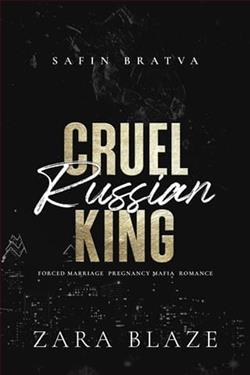Page 1 of Sniper's Pride
One
After the second time her husband tried to kill her, Mariah McKenna decided she needed to get out of Atlanta.
The first time could have been an accident. That night she had gone to yet another strained charity dinner where everyone smiled sweetly, blessed her heart, and made it perfectly, politely clear they wouldn’t be taking her side in the divorce. And even though Mariah knew better than to touch shellfish, it was always possible that there could have been cross-contamination in the food. Especially in a hotel banquet situation with complicated hors d’oeuvres passed around on gleaming silver trays by bored college students.
Mariah knew it was entirely possible that she’d tossed back what she’d thought was a little cheese puff pastry when it was actually cleverly concealed shrimp. She’d been too busy pretending not to notice the speculative, not particularly friendly looks being thrown her way to taste a thing.
It could easily have been an unfortunate accident. Or her own fault for not paying attention.
But she was pretty sure it was David.
He had gone out of his way to get nasty with her only the day before.
“You can’t divorce me,” he’d snarled, getting much too close to her in the sunny parking lot of the Publix in her new neighborhood. That had been her fault, too, for not paying closer attention to her surroundings. She should have seen David’s overly polished Escalade. She shouldn’t have imagined for a single second that he’d allow her to go about without permission, having a normal life like a regular person. “Youcan’t divorceme.”
That was why, when her throat had started to close up, the first thing in her head was the way his face had twisted like that, out there in a parking lot in the Atlanta spring sunshine for anyone to see. When David got mad, his accent—what Mariah’s mother had always calledhigh Georgia—changed. It became clipped and mean. Then there was the red face, the bulging eyes, that vein on his forehead, and the way he bared his teeth. None of that was pleasant, surely.
But for some reason the fact that he sounded less Georgia old money and more cruelly staccato when he was mad was what got to her the most. Because she’d worked so hard to get the redneck out of her own decidedly low-brow accent and she never, ever let it slip. Never.
Still, accidents happened. That was what the doctors told Mariah when she could breathe again. It was certainly what the hotel hastened to tell her, in the form of half their legal team crammed into her makeshift cubicle in the emergency room.
And despite the overly exposed feeling that stuck withher every time she flashed back to that ugly parking lot confrontation, Mariah accepted the idea that it was an accident. She wasn’t living in a gothic novel. Her divorce was ugly, but what divorce wasn’t? There was no need to make everything worse by imagining that David wasactuallytrying to kill her.
But the second time she found herself in the hospital, she stopped kidding herself.
There had been no banquet with questionable puff pastries that night. She’d been at home, delighted that she was now pointedly excluded from social invitations as word got around that David Abernathy Lanier and his jumped-up, white trash wife weren’t simply in the throes of one of those trial separations that always ended up with a tight-lipped decision to stay together for the sake of the family fortune. David was divorcing her—Mariah knew that was how the story would make the rounds, no matter that she’d been the one to leave him—and Atlanta society was sensibly siding with the old money that made them all who they were.
Mariah had been all alone in the cute Midtown apartment she’d moved into when she’d fled David’s showcase of a home in tony Buckhead. Her cozy one-bedroom was a mere seven miles away, but located in an entirely different world than the one where David and people like him lived. And it was the only place that she’d ever lived alone. She had gone straight from her mother’s house to her husband’s, where she couldn’t say she’d lived with him so much as near him, surrounded at all times by the loyal staff who might have pitied David’s poor, unsuspecting wife but were too well paid to intervene. Or even treat her kindly if David didn’t wish it.
For a long time she’d measured her life against thatfalling-down farmhouse in rural Two Oaks, Georgia, where there were more boarded-up buildings than people and where her family continued to live out of sheer stubbornness. While nothing in Mariah’s life had turned out the way she’d been so sure it would when she’d been a foolish twenty-year-old looking to be rescued by a handsome man in a fancy car, she couldn’t deny that there was a certain pleasure in having her own space at last.
No matter how she’d come by it.
It was while she lay there in another hospital room, cordoned off from the rest of the emergency room by a depressing blue curtain—staring up at the fluorescent lights, waiting for her EpiPen to finish letting her breathe, wondering if she’d have the dreaded biphasic second reaction—that she finally understood.
There was no safe space. Not for her.
David shouldn’t have been able to get into her apartment, but he had. She was still trying to breathe, feeling like there was a hand wrapped tightly around her throat. She didn’t bother telling herself any comforting stories this time. David had broken in or hired someone to break in for him. The latter scenario was more likely, because David was not a man who did anything that he could hire someone else to do for him. She felt a sick sensation roll through her, adding to the panic. It felt a lot like shame.
Or worse—fear.
Because David or some faceless minion had been in her pretty furnished apartment with its pastel walls and view over Piedmont Park. They had touched her few personal items. Rifled through her clothes. Sat on the furniture she’d started thinking of as hers. And at some point, tampered with her food to make sure she ended up rightback in the emergency room with a far worse reaction than before.
They’d defiled the one place she had ever considered hers, then she’d put their poison in her own body, and she hadn’t even known it. She hadn’t sensed it. She hadn’tfeltany of it. She’d gone about her life as if everything were normal when it was actually a trap.
The sheer violation was almost harder to take than her near-fatal allergic reaction.
Again.
“You need to be very, very careful, Mrs. Lanier,” the doctor said, scowling at her as if she’d thoughtto hell with this potentially lethal allergyand had treated herself to a big old lobster dinner.
“I’m always careful,” she replied when she could speak. “And it’s Ms. McKenna, not Mrs. Lanier. My name change hasn’t gone through yet.”
“Two anaphylaxis episodes in one month isn’t being careful, ma’am.”
And what could Mariah say?My husband would rather kill me than suffer through a divorce, as a matter of fact. I think he snuck into my new apartment and doctored my food so this would happen.Even if the impatient doctor hadn’t already been scowling at her, she wouldn’t have risked it.
David’s family had a wing named after them in this hospital. In every hospital in Atlanta, if she remembered her father-in-law’s genial bragging correctly. The last thing she wanted to do was find herself remanded to the psych ward, where a man whose name was all over the hospital could access her as he pleased. Possibly kill her at his leisure. Right out in the open, no incognito shrimp required.















